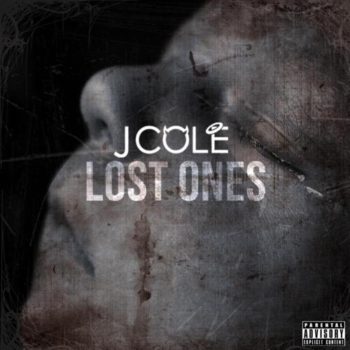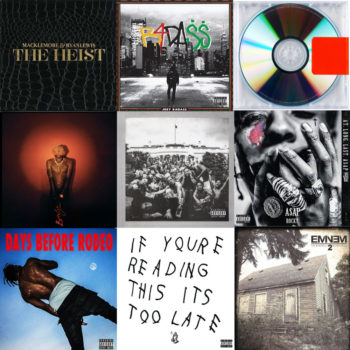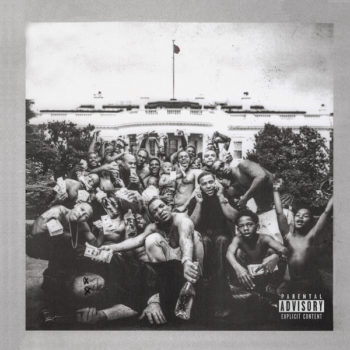Originally Posted: October 28, 2013
Updated: December 12, 2016
Editor’s note: Fellow music journalist and online friend William Ketchum III penned an excellent piece for HipHopDX this past Halloween on the greatness that is Eminem’s “Relapse” and how understood it really is. Along with the relaunch of the site, and being three years since Eminem’s “Marshall Mathers LP 2” dropped, I wanted to reexamine my statements here and further expand on my thoughts on why “Relapse” is criminally underrated at this point.
Three years ago, Eminem returned to the music scene for the first time since releasing his Grammy-award winning album “Recovery” three years prior. The Detroit rapper-elite did this by following up his greatest album ever with a sequel dubbed, “The Marshall Mathers LP.” Unsurprisingly, the album was met with a lot of speculation, criticism, and attention.Over the years, many fans and critics alike have stressed their desire for Em to return to his roots to make “The Marshall Mathers LP 2” in the style of its namesake, yet others express their disdain for any further Eminem record ever matching the audacity and bravado of pre-“Encore” records. Now that we’ve had time to digest Eminem’s latest solo album (and I had the chance to review it, albeit fresh off the actual release date), my opinion that “Relapse” was the last true iteration of Slim Shady has become so much stronger.
Why have fans and critics abandoned one of the most astounding artists of the last decade? Blame gets thrown at Eminem’s unfortunate run-in with drug addiction that culminated in the creation of “Encore” and even near-death. With a mighty return to music in 2009, Eminem – essentially renewed with life and vigor – dropped his most debated piece of art yet: “Relapse.”
“…there are songs [on Relapse] where Em flogs himself through the motions to rehash same-old shtick.”
– Rob Sheffield, Rolling Stone
“[Relapse]’s still stuck in Marshall Mathers’ muck, his fundamental mistrust of pleasure and love.”
– Ann Powers, LA Times
“…[Relapse is] so painfully unfunny that you can’t even bother to act offended.”
– Ian Cohen, Pitchfork
Over time, I think, fans have settled on one side of the fence – either Relapse was an honest and well-crafted effort or it was annoying album unworthy of being called a true comeback as it failed to bring back the value of “The Eminem Show,” “The Marshall Mathers LP,” and “The Slim Shady LP.”
I’m here to argue something even more than admitting it was a good album. I am here to state that not only is “Relapse” one of Eminem’s most entertaining records, but it is his last great album. Period. “Relapse” was the last bit of Slim Shady we will ever get and although the man will continue to pump out music for good or for worse, none shall be greater than “Relapse” was.
Making the case: Relapse > The Marshall Mathers LP 2 + Recovery
“Recovery” was a massive let-down. In retrospect, I favored “Relapse” way more than I did “Recovery.” Perhaps I connected to “Relapse’s” dark lyrics reflecting upon mental illness, being stuck in a rut, and crumbling relationships more than I did with “Recovery’s” messages; however it is certainly more involved than that. “Relapse” had something – in fact many somethings – that made it far superior to “Recovery,” and even “The Marshall Mathers LP 2.”
The 2013 follow-up to Eminem’s sophomore album failed to reinspire those who became a fan of the man’s work in the first place. Instead of compelling stories like “Stan,” listeners were given a lazy sequel that didn’t get good until near the very end. Instead of neck-breaking beats as heard on songs such as “Bitch Please II,” we got more of the post-“Recovery” stadium rap-rock on “Survival.”
Whereas “Relapse” was Slim Shady at home on the mic, despite being within a broken mind, “Recovery” and “The Marshall Mathers LP 2” features an aging hip-hop icon battling with himself to come up with as many quick-tongued, jam-packed, mind-busting rhymes as possible.
Creativity
“Relapse” displayed drastically more creativity than “Recovery” and “The Marshall Mathers LP 2” combined. The former found the rapper traversing through songs acting as serial killers (“3 A.M.), his beloved alter-ego (“Hello”), deceased actors (“Medicine Ball”) and a ravaging superstar full of crazy thoughts (every other song, pretty much). The majority of “Relapse” is Eminem playing the role of a serial killer, and the infamous accent helps illustrate that and, in my opinion, adds to the eerie appeal of the album’s setting.
“Recovery,” on the other hand, simply gave way for an emcee to try and let loose trivial bars full of puzzling metaphors (“Cold Wind Blows”) and lines that never make sense on first-listen (“On Fire”). Meanwhile, Em is rapping lightyears per hour, mostly saying little, if anything, on much of “The Marshall Mathers LP 2.” Impressive, yes. Creative? Not in my book.
Lyricism/Content
Both “The Marshall Mathers LP” and “Recovery” can stand upon similar ground in this category, while “Relapse” stands alone. “Recovery” and “The Marshall Mathers LP 2” are loaded with tracks full of raps meant to impress and nothing more (“On Fire,” “So Bad,” “Survival,” “Berzerk,” and more).
This lack of substance pushes me to accept “Relapse” as having the better lyricism overall, even if by a small margin. But there’s no denying tracks like “Déjà Vu” and “Beautiful” are some of Eminem’s greatest songs of all time, while other songs like “Stay Wide Awake” and “3 A.M.” feature some of Eminem’s most natural narrative storytelling ever.
The powerful, personal and engagingly emotive lyrics and dark, vivid imagery affect listeners far beyond what they could with the words spit on “Recovery” and “The Marshall Mathers LP 2.” I’d even argue that no track on “Recovery” nor “The Marshall Mathers LP 2” could ever comfortably sit on a Greatest Hits album – but I’ll admit that maybe, just maybe, not enough time has passed to really make that call (but I’m pretty confident).
Production
Is this even worth arguing? Does anybody actually think the production on “Recovery” was better than “Relapse”? And Rick Rubin’s stripped-down executive production on “Rhyme or Reason” and Eminem’s own co-production on “Evil Twin” are worthy of mention, they aren’t anything like what Dr. Dre managed to craft on “Relapse.”
Dr. Dre’s funk-driven, booming, full-bodied production tromps Boi-1da’s epic, cracking snares any day. Even a legendary producer like Just Blaze couldn’t muster up anything good (“Cold Wind Blows” being one of the most bizarrely disappointing productions ever released by the man).
Rather than the words trying to match the beat as on “Recovery,” or playing around with old-school, rock-influenced hip-hop sounds on “The Marshall Mathers LP 2,” “Relapse” found Dre’s beats honing in what Em was trying to get across sonically. This production-to-lyrics relationship is vital in a successful record and the dark, menacing vibes of “Relapse” made their mark with the help of well-orchestrated instrumentals; while “Recovery” seemed to be a forceful effort to bend his sound towards a more contemporary, mainstream audience.
Even more so, I find it amazing that so many dismiss “Relapse” when the production sounds so similar to his earlier works, as Ketchum noted in the piece I alluded to earlier. “Bagpipes from Baghdad” is sonically in the same vein as “Square Dance,” “We Made You,” is like “Without Me” in its joviality and wit, and “Beautiful” has the same grim introspection as heard on “When I’m Gone.” The connections go on and on.
Theme
“Relapse” definitely wins the prize here, and I’ve touched on this a bit before, even though it is not too important for a record to have a theme. Even still, a theme does arguably add to the value and overall cohesiveness to a piece of music, something, both “Recovery” and “The Marshall Mathers LP 2” lacked, bearing only the resemblance of a mish mosh of tracks made to prove his standing as a lyrical king (which is something that does not need proving, if you ask me).
Consistency
The consistency of an album is really a culmination of all the above: lyrics, production, and theme. “Relapse,” especially with the help of the four skits reminiscent of “The Marshall Mathers LP,” flowed a lot better than “Recovery” and “The Marshall Maters LP 2.”
Again, “Recovery” perpetuated itself into a convoluted slurry of complicated rhyme schemes, overly drastic beats and muggy concepts, while “The Marshall Mathers LP 2” featured an emcee hellbent at proving his lyrical worth, despite having over a decade’s worth of better material to prove such a point.
“Relapse” was able to tie each track together, not perfectly, but in a fitting way far greater than “Recovery” and “The Marshall Mathers LP 2” could in even the feeblest attempts. From simply dragging sounds from one track to the next (“Bagpipes From Baghdad” fading into “Hello”) to incorporating quick but progressive skits (“Tonya” transitioning into “Same Song & Dance”), “Relapse” had a fairly solid storyline/concept and effortless consistency, whereas “The Marshall Mathers LP 2” didn’t really and definitley did not. I give most of the credit to Dr. Dre on this one for probably orchestrating how seamless “Relapse” turned out to be.
“The Marshall Mathers LP 2” did incorporate a nostalgic skit though, from “Parking Lot (Skit)” into “Rhyme Or Reason,” which picked up where the skit in “Criminal” left off. But that was the only skit on the entire album. Once more, this is not a necessity for any album to be good, but it does help leverage which one had the better overall package.
Flow/Skill/Delivery
I will forever stand by Eminem’s style on “Relapse” over Eminem’s style on anything after “Relapse.” This has a lot to do with the flow and overall delivery skill the Rap God possesses on each respective album.
On “Relapse”, Em did not miss a step; the familiar slick, non-stop, effortlessly menacing flow swung along to the beat of Dre’s drums. The only thing that puts a big stamp of “shortcoming” on the record as far as his delivery goes is the accent (but as I mentioned earlier, the accent is an important creative element that further creates the serial killer character Eminem was going for).
Minus the nasally tone of Eminem’s vocals on the album, his flow is on point and just as mesmerizing as it was on “Criminal,” “Guilty Conscience” and other early tracks. “Recovery” found Eminem searching for new ground. With the jaw-dropping, comeback verse of the year on “Forever,” it was made clear that fans were amazed and entranced at the shear speed at which Eminem could rhyme.
This, coupled by his equally speedy BET Cypher verse, made it seem like that’s all fans wanted. So Eminem got to writing as many words as he could fit in a single line and then spit them as fast as he could on “Recovery.” This was even more prevalent on “The Marshall Mathers LP 2.” But in trying to re-prove himself as the artist who gave the world some of hip-hop’s most shocking and most lyrical records, he tried too hard and it showed.
Some rhymes were quizzical, like “Stick my dick in a circle, / but I’m not fucking around” from “Cold Wind Blows,” and some just made you groan from their corniness: “listen garden tool / don’t make me introduce you to my power tool, / you know the fucking drill” from “Won’t Back Down.” On “The Marshall Mathers LP 2,” it was more a matter of Eminem’s outright lyrical debauchery on songs like “So Far…” and “Love Game,” where he sacrificed quality substance and understandable lyrics for a fast-paced cacophony of nonsensical lines.
In an effort to try and resort back to the yelling and intricate wordplay that made him famous, he lost the prowess that went along with that yelling and wordplay, causing his content to come across as painfully forced at times, which is unfortunate, because I believe Eminem found a balance between his old style and this new, faster style on his joint album “Hell: The Sequel” with Royce da 5’9″ as Bad Meets Evil.
The only reason I dispute this case is because so many people, including Eminem himself on his hit single “Not Afraid,” say “Relapse” was a failed comeback. I’ve made the argument that, rather, it was poorly received; people did not understand this evolution simply because Em had given little grace between his departure from music and his subsequent return. So jumping back onto the scene with “Relapse” was like jumping into an icy bath – it shocked people so much that they didn’t like it at all and retracted every time they neared it.
I will never ever say “Recovery” or “The Marshall Mathers LP 2” was a bad record, because I spun both albums so many times after their releases, and still go back to certain songs every now and then. But to say “Recovery” was the superior record and the true-comeback album over “Relapse?” Or that “The Marshall Mathers LP 2” is more listenable than “Relapse”? That’s where I’d have to disagree.
Nonetheless, I think Eminem hit his peak a while ago, but can definitely serve up amazing songs and albums – that I do not doubt. But with “Recovery” long since released and “The Marshall Mathers LP 2” a growing shadow behind us, I feel comfortable believing that “Relapse” was the last great body of work Em has to offer – the rest will be sweet icing on the cake, and hey, who doesn’t like icing?





